By its appearance, most cycads look like palm trees. In fact, they are considered pseudo-palms, but they belong to a different family. The genus Cycas is part of the Cycadaceae family, exotic plants from warmer parts of Asia and Oceania. They do not produce flowers, but cones, much like pine trees.
They are plants of great antiquity that have conserved very well their characteristics, so much that some consider them living fossils and speak of them like plant of the immortality. The truth is that Cycads are modern plants that are still evolving and speciating like any other plant, but they just kept their “primitive” architecture.
Slow growth
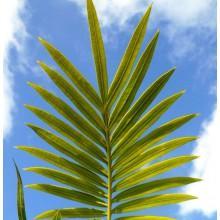
However, it is advisable to take care of the spot where they are planted. None of them loves direct sunlight when young, but once they get older some species need full sun while some others need some shade.
Read carefully about each species and see where they are from: some of them can take some frost, while some others are strictly tropical. A few species evolved in the Australian desert. They usually have blueish leaves and they can also be deciduous in the dry season, staying as resting stumps for months.
Thick roots … good for pots!
When you buy the typical 3-5 years old plant from us, you will see that young plants have thick deep roots like carrots (and also “coralloid roots” like corals !). In turn, adult plants have rather superficial roots that do not go too deep.
So, it is important that pots are deep and with bottom drainage. An excess of water damages the cycas, so drainage and moderate watering are key. But adult plants can live for eons in 40-50 cm deep pots, so many collectors living in cold climates choose to grow them in large pots that will be kept indoors during the colder months.
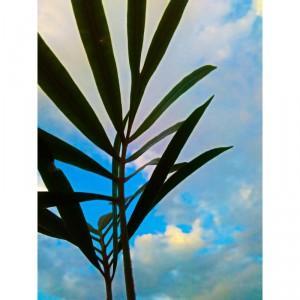
Plants will become sexually adult after about five to fifteen years from its birth. A cycad will never set any flowers – they are “gymnosperms” and, when the love bells are ringing, female specimens will produce a pineapple-shaped inflorescence containing macrospores. The males will give longer, thinner, usually upright cones, undoubtely “manny-looking”, often spreading some yellow pollen from their microsporophylls.
At this point it is important to remember the new cycads from China – Cold Hardy. If you want to know more about it, click here.
Due to their slow growth, resistance to neglect and low maintenance, they are perfect plants for gardening and also decoration.
Diversity of Cycas in our online store
In Canarius we have a wide offer of cycas, adapted to the tastes and needs of each plant collector. We do not sell weakish seedlings: all our plants usually spend three years in the nursery before going to the shop. Here we mention a few species, but please check in our store what is available.
-
Cycas hainanensis, a fast growing species originating in the mountain forest of Hainan Island, China.
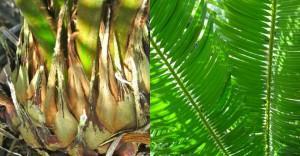
-
Cycas panzhihuaensis, from inland China, is one of the cold-hardiest. It has stiff, bluish leaves and can take some hard frost that other species can’t handle.
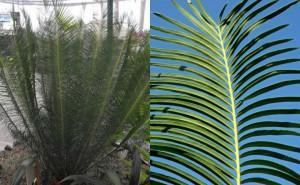
-
Cycas tanqingii from Yunnan, China and northern Vietnam. It has a sturdy trunk with long dark green leaves, coated by a fuzzy red velvet.
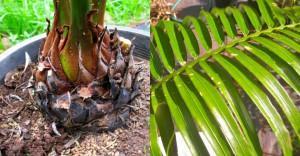
-
Cycas micholitzii, with a low short trunk and beautiful bipinnate leaves, that spread and split like a fern.
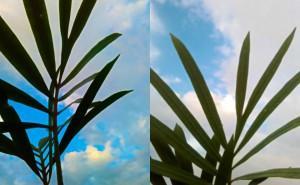
Are they are expensive?
Well, they are not cheap! They are slow plants, with a very slow germination process and seeds are usually hard-to-find. Some species are faster than others and some seeds are cheaper. As the rest of exotic plants, in our online store you can find varieties adapted to the pocket of each customer. Cycads are hard to kill and will gain size through the rest of their (and your) life. Many of them will live longer than us.
Old specimens can reach high prices of 1000’s of euros, but anybody can start with a young Cycas panzhihuaensis or Cycas hainanensis which is affordable and will grow with time.
Endangered and protected?
Quite a few species of Cycas are in the IUCN red list of threatened plants. Some are exceedingly rare and critically endangered. Only a few are widespread.The genus Cycas as a whole is protected by the CITES international laws, but it is listed in the appendix CITES II, which is a milder level than the CITES I appendix, which includes the highly protected species of Encephalartos and others.
Canarius is FULLY LEGAL! All our plants have been started by us from seeds with official papers and we are registered as CITES producers. If you are not in the European Union, we will prepare a special CITES Export Document when we ship these plants. Yes, buying from us is a help to preserve the species!
Why choose Canarius to buy cycas and cydad? Find out here!

